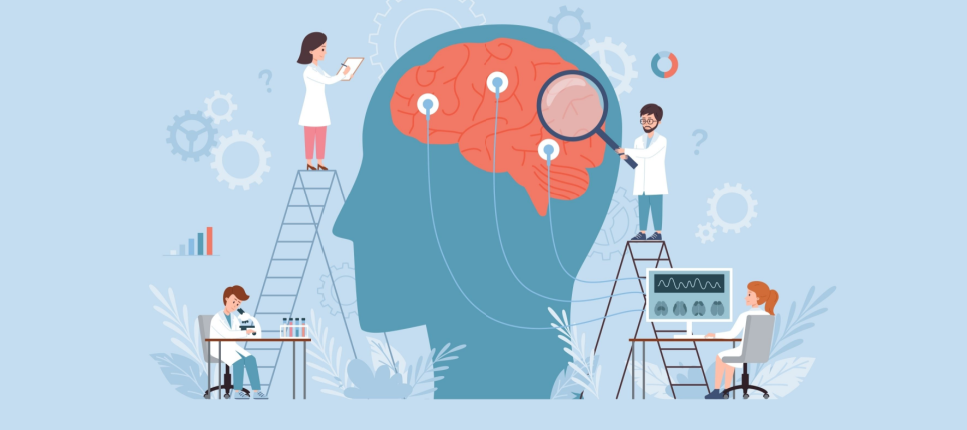There is growing interest in the importance of autonomy in learning, including among adults. This topic seems more relevant than ever, given the growing importance of online training, which can require learners to be more autonomous than face-to-face approaches. Do you know what self-training is? Can you distinguish between concepts such as metacognition, self-regulated learning and self-efficacy? Do you know the importance of these concepts in the development of learner autonomy and success? Can you tell us whether neuroscience has made any significant discoveries in this area in recent years? Test your knowledge by answering the following five questions.
1. True or false? Cultivating one’s own knowledge in one’s spare time or searching for information on the Web is exactly what the term “self-training” means.
CORRECT ANSWER
FALSE
Learning on your own in your spare time is not necessarily self-training, and neither is searching for information on the Web. Moreover, self-training is not an all-encompassing concept that would designate any innovative form of learning other than the traditional lecture.
Self- training is also distinct from individualization in education, experiential learning and distance learning, the three approaches with which it is most often confused.
To find out exactly what self-training is:
2. Which concept specifically promotes the idea that having a wealth of knowledge and learning strategies is not enough to learn; you also need to be able to mobilize these resources actively and sustainably, using motivational levers?
A) the concept of experiential learning
B) the concept of metacognition
C) the concept of self-regulated learning
D) the concept of self-efficacy
CORRECT ANSWER
C.
Self-regulated learning is one of the most interesting and encompassing concepts of autonomy in learning, including for adults. It dynamically integrates the fundamental aspects of the act of learning: cognition, motivation, metacognition and volition. To help you better grasp this concept, here are a few elements drawn from a literature review on the subject by Professor Laurent Cosnefroy.
Formed from the Greek “autos” (self) and the Latin “regula” (rule, law), the term “self-regulation” refers to a system’s ability to regulate itself, without external intervention, in the event of an internal or external disturbance. It can be used to refer to an organism, a process, a system or a machine. Several researchers have examined self-regulation in learning, and various definitions have emerged from this interest. In his literature review “L’apprentissage autorégulé : perspectives en formation d’adultes“, Laurent Cosnefroy favours Shunk’s (1994) definition of self-regulated learning, which describes it as “a set of processes by which subjects activate and maintain cognitions, affects and behaviours systematically oriented toward the achievement of a goal.” This definition thus presents the learner as an autonomous subject who actively participates in their learning at motivational and metacognitive levels, striving to achieve the set goal(s). It assumes that simply triggering the action of getting down to work is not enough to achieve one’s goals.
Find out more:
3. Which of the following definitions of metacognition is/are correct?
A) Metacognition refers to the subject’s knowledge of their own cognitive processes and products. It also refers to the active control, regulation and orchestration of these processes.
B) Metacognition is a domain that encompasses: the introspective, conscious knowledge that a particular individual has of their own cognitive states and processes; the abilities that this individual has to deliberately control and plan their own cognitive processes with a view to achieving a given goal or objective.
C) Metacognition is a mental process whose object is either a cognitive activity or a set of cognitive activities that the subject has just performed or is in the process of performing or a mental product of these cognitive activities. It can lead to a judgment (usually unexpressed) about the quality of the mental activities in question or their product and eventually to a decision to modify the cognitive activity, its product or even the situation that gave rise to it.
D) Metacognition corresponds to the way in which a person looks at their mental activity with a view to action in order to plan, evaluate, adjust and verify his or her learning process.
CORRECT ANSWER
ALL THESE ANSWERS
A is by Flavell (1976); B, by Gombert (1990); C, by Noël (1997); and D, by Deaudelin and Lafortune (2001).
Metacognition in bulk:
- This faculty enables us to identify our mistakes and successes and to understand their origins.
- It develops in childhood, but we can improve it throughout our lives.
- We use it whenever we try to learn something new that goes beyond simple automatism; in other words, in any task that requires planning or self-reflection.
- It can be applied to both abstract and concrete (so-called “manual”) tasks. In the latter case, to illustrate, we often use the example of assembling a piece of furniture from a kit, a task that requires us to reactivate our knowledge and skills in furniture assembly and to plan it to a certain extent in order to complete it successfully (achieve a goal).
- We sometimes associate it with “learning how to learn,” but it’s more accurately summed up as a set of “cognitions about our cognitions” or “knowledge of our own cognitive processes.”
By developing our metacognitive skills, we can hope to improve the quality of our learning and our autonomy as learners, two major assets for success in self-training and elearning.
Find out more:
4. According to the eminent Canadian psychologist Albert Bandura, pioneer of the sociocognitive movement, what is the most powerful vector of all our self-reflexive capacities that govern our behaviour?
A) a sense of self-criticism
B) deep reflection
C) sense of self-efficacy
D) self-esteem
CORRECT ANSWER
C.
Self-efficacy is derived from Albert Bandura’s theory of self-efficacy, according to which individuals develop and regulate beliefs (or convictions) about their ability to make actions or events happen. Also known as self-efficacy or contextual or situational confidence, the feeling of personal efficacy corresponds “to the judgments people make about their ability to organize and carry out sets of actions required to achieve expected types of performance” (Bandura, 1986). According to Bandura, of all our self-reflective capacities that govern our behaviours, emotions and motivations, the feeling of personal efficacy is the most powerful vector. And for the father of social cognitivism, this feeling is nothing less than the foundation of our motivation, achievement and well-being.
Numerous studies have validated the central premise of self-efficacy theory, which its author sums up as follows: “If people do not believe that they can achieve the results they desire through their actions, they have little reason to act or persevere in the face of difficulties” (Bandura, 1997). Sense of self-efficacy always concerns personal judgments specific to a precise category of tasks or operations, such as being good at drawing; it would, therefore, be inappropriate to generalize into a sense of artistic efficacy a sense of efficacy in drawing.
Find out more:
5. True or false? Several recent discoveries, some made possible by neuroscience, can greatly help learners in their quest for autonomy and success.
CORRECT ANSWER
TRUE
The simple fact that we now know that the brain possesses this extraordinary capacity to evolve and adapt at any age, a characteristic known as cerebral (or neuronal) plasticity or neuroplasticity, is a factor that should motivate every learner. Driven by cognitive activity (or learning), brain plasticity means that neuronal connections are created or strengthened, weakened or eliminated, modifying both the architecture and functioning of the brain.
There are many other insights that can help learners in their quest for autonomy and success.
To discover some of them :
- [VIDEO] Neuroscience: Learning in 4 Steps
- [VIDEO] The importance of emotions in learning
- [VIDEO] 3 Mistakes to Avoid While Studying
- 5 Factors Influencing Memory Process
- How to deal with the stress before an exam
- Rest and Recuperate Smartly
- How to help your brain “unplug”
- Motivation and Success from the Brain’s Perspective: Test Your Knowledge
- Brain, Learning and Neuroscience: Test Your Knowledge!
Author:
Catherine Meilleur
Creative Content Writer @KnowledgeOne. Questioner of questions. Hyperflexible stubborn. Contemplative yogi.
Catherine Meilleur has over 15 years of experience in research and writing. Having worked as a journalist and educational designer, she is interested in everything related to learning: from educational psychology to neuroscience, and the latest innovations that can serve learners, such as virtual and augmented reality. She is also passionate about issues related to the future of education at a time when a real revolution is taking place, propelled by digital technology and artificial intelligence.






